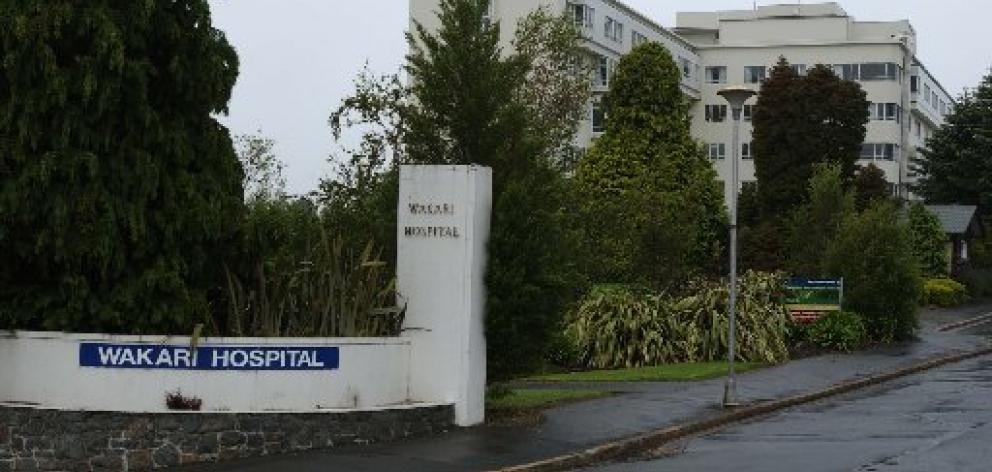
Ward 11, a clinical rehabilitation and overflow ward with 16 beds, is one of several parts of the hospital which have been identified as being badly run down and/or not fit for purpose.
The review, released last month, made a wide-ranging series of recommendations, including that the board clearly signal its intent to eventually close Wakari after ways were found to deliver services now provided there elsewhere.
A report considered by an SDHB board meeting yesterday said executives had met staff in ward 11 to tell them it would close on the Wakari site.
‘‘A draft expression of interest has been prepared to test the market for the transition of our long-stay patients,’’ the report said.
‘‘The wider other facility issues for the Wakari site will be considered once the change manager is in place.’’
A 2019 report on Wakari Hospital prepared for the SDHB by consultancy firm Sapere said faults with ward 11 included that patients had no access to outside spaces, that there was insufficient space in their rooms and that staff had limited office space.
Overall, that report said almost all of Wakari Hospital’s mental health facilities were not fit for purpose, posed safety risks to patients and staff and hindered appropriate treatment of patients.
The report said options to be considered for ward 11 patients could include community-based options and packages of care.
The SDHB has formed a change governance group to oversee implementation of the review.
It will be chaired by Clive Bensemann, the Auckland-based clinician who steered the independent service review, and will meet for the first time this month.
SDHB chief Maori health, strategy and improvement officer Gilbert Taurua said work had also progressed on introducing mental health crisis services in Queenstown and Waitaki.
‘‘[For Queenstown] this will require the development of a respite supported accommodation facility and services able to be called upon 24/7,’’ he said.
‘‘This will require additional investment. A brief discussion with Safer Waitaki has been had and we will need to follow a similar process for the development of a crisis service for the Waitaki.
‘‘We have no mental health and addiction and intellectual disability services based in the Waitaki Hospital, so this plan will need to be worked up in collaboration with the community.’’
Consultancy firm Leadership Lab had been contracted to help introduce recommendations on organisational development and culture, Mr Taurua said.
‘‘We know there is a lot of passion and a real desire for things to be different within mental health services,’’ he said.
‘‘They have worked with some of our local southern communities on community development initiatives and have experience working with DHB specialist mental health services.
SDHB chairman Pete Hodgson said it was pleasing to see plenty of action had already been taken on implementing the report.
‘‘This report is not one which will gather dust and we will progress it,’’ he said.
Advertisement
Comments
Right. Close the facility without having a replacement planned. Genius. Ward 11 was grim and understaffed, but it was better than nothing at all. Now the SDHB wants to replace it with an undefined alternative that may or may not include "packages of care", whatever that is. The DHB may think that deleting the blot that is Ward 11 is going to solve a problem... and it might... no one will be able to complain about Ward 11 anymore. But what about the patients? It seems they have long since stopped being the focus. In the rush to close the ward without a credible alternative in place, the DHB is failing the very people they are supposed to serve. And that is shameful.
Packages? Community outreach. Is 11 acute or long stay patients?
I have been a patient at ward 11 and at Dunedin public hospital. There is far more access to outside green spaces at wakari, even just by looking out the window. Concrete and cars are the view from ward blocks in town. Nature promotes healing and even though I hated needing to be in hospital I definitely preferred being at wakari. Having my own room , even if it was small is still often more than what is on offer in town where there is often 4 beds in one room. The gardener's at wakari do a great job with limited resources and was very much appreciated. Patients and staff are often out for a daily stroll within a beautiful natural environment rather than being bombarded by loud noises of a busy town with traffic and shops.













